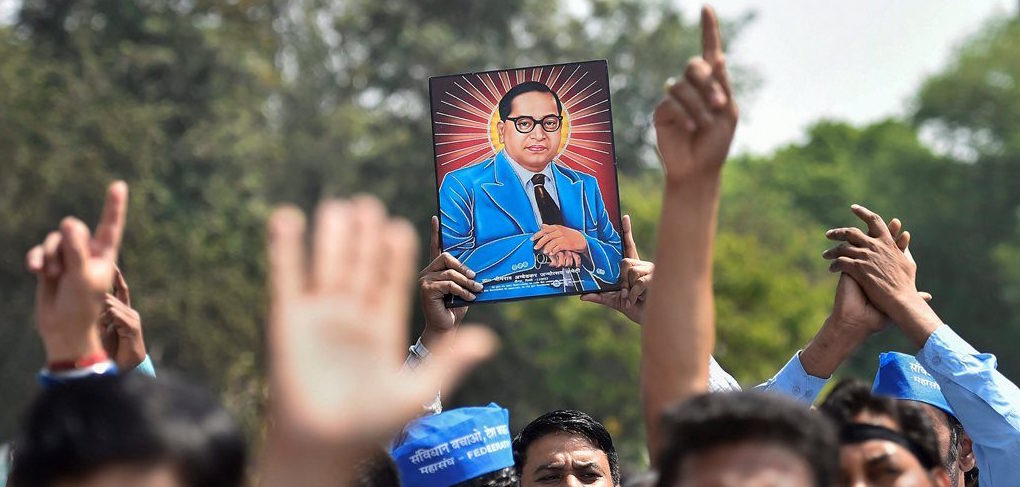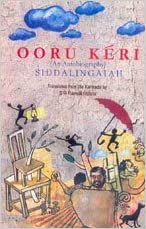
Poet Siddalingaiah leaves behind a Dalit movement in disarray
Popular Kannada Dalit icon Siddalingaiah’s untimely death due to COVID-19 comes at a time when the organisation he co-founded, the Dalit Sangharsh Samiti (DSS), and the movement for emancipation of the oppressed he helped build is struggling to assert itself.From the heights of activism the DSS was involved in during the late 1970s for over two decades, it has since the turn of the century gone downhill, almost to the point where it no longer matters.

Popular Kannada Dalit icon Siddalingaiah’s untimely death due to COVID-19 comes at a time when the organisation he co-founded, the Dalit Sangharsh Samiti (DSS), and the movement for emancipation of the oppressed he helped build is struggling to assert itself.
From the heights of activism the DSS was involved in during the late 1970s for over two decades it has, since the turn of the century, gone downhill almost to the point where it no longer matters.
While arguably the 20-year period was also one that witnessed Dalit cultural and literary renaissance in Karnataka, those at the helm of the movement have been caught in an existential dilemma over the future course of the DSS, its relationship with mainstream politics and the long-term strategy it would need to follow to break the spine of centuries-old caste oppression.
The DSS rose into prominence across various parts of Karnataka by taking up issues of Dalit oppression and launching mass protests whenever any incident of discrimination came to the fore, like for example, their fight against bonded labour in Kolar district in the early 1980s that brought succour to scores trapped in the feudal system.
Also read: COVID cuts short poet Siddalingaiah’s struggle against casteism
The DSS itself was formed from an amalgamation of various smaller Dalit groups that were active in the 1970s.
A perusal of some of the writings by Dalit intellectuals indicate that the DSS leadership was more interested in the social emancipation of the community including access to education rather than direct intervention in electoral politics. Siddalingaiah, who had risen to prominence with his blazing poetry and incisive prose, was among the proponents of this line of thinking. It was explained by the fact that both his parents were daily-wage labourers, and he had to put up a supreme struggle to get educated.
As a reviewer S Bharathiraja writes of Siddalingaiah’s much-acclaimed autobiography Ooru Keri (Village Colony), “he had a strong notion that education is the only political solution to uplift the Dalits’ standards of life. Thus, the fire of self-empowerment began to burn with the fuel of education”.
 An oft-made comparison is between the trajectory chosen by DSS to that of Kanshiram in Uttar Pradesh who took the Dalit movement on the electoral route to resounding success via the Bahujan Samaj Party (BSP).
An oft-made comparison is between the trajectory chosen by DSS to that of Kanshiram in Uttar Pradesh who took the Dalit movement on the electoral route to resounding success via the Bahujan Samaj Party (BSP).
According to fellow thinker and critic, the late D R Nagaraj, in a 2014 republished article for the India International Centre Quarterly, Siddalingaiah was more inclined to “the politics of cultural affirmation” of the Dalit community rather than “entitlement politics” of the kind Kanshiram of the Bahujan Samaj Party propounded. Both strategies were valid but different, he explained.
In Siddalingaiah’s point of view, “the politics of the BSP represents the emergence of Dalit power. But it also means the absence of cultural affirmation,” wrote Nagaraj.
This perception seemed to have had an impact on the larger political vision of the DSS which remained at arms’ length distance from direct participation in electoral politics, while at the same time championing the Dalit cause from a socio-political standpoint.
Also read: The first Dalit SC judge: Tale of a forgotten luminary
In effect, it turned out that the mainstream political parties of which the then Janata Party under Chief Minister Ramakrishna Hegde was in power from 1983-89 manoeuvred to co-opt a section of the Dalit leadership into mainstream party politics that may have dented the ferocity of the DSS and eventually subsumed the movement. Siddalingaiah himself became a Member of the Legislative Council in 1988 with Hegde’s backing.
More recently, Prime Minister Narendra Modi had included him in a high power committee as a non-official member on the occasion of the 125th Ambedkar Jayanti.
On the perception that he was comfortable with “the powers that be”, Siddalingaiah told an interviewer with The Hindu in September 2019, that “such thoughts have emerged while I was an MLC and now”. Indicating his actions may have been misunderstood, the Dalit poet said he had never asked for any personal favours, “but people said all kinds of things to me. Some even threatened to finish me off. I have said nothing against society or people. It is time progressives think beyond their own comfort zones, they have become intolerant and conservative, something that they accuse the Right of. We have to be open, if we can push our agenda, we must try. After all, the issue is more important”.
Over time, the DSS has been reduced to a pale shadow of its former self, suffering multiple splits. Asked by The Hindu for his opinion on the state of the DSS, Siddalingaiah had said, “There are too many factions within the group now. It is no longer a pressure group that can make the establishment take note of it. It lacks mature leadership. I wish that all the splinter groups would come together and fight for a common cause. Sadly, there is very low ideological awareness. But that is the state of all progressive movements – be it the farmers, the labourers, the Left… all of it.”
Meanwhile, the jury is out on the impact of the DSS on the Dalit movement in Karnataka.
Academics like Chandrakant Yatanoor say that Dalit-led protests “have certainly brought about self respect, awareness and confidence among them. Yet, they have not become either independent or self reliant as a collective in relation to oppressor groups.” Atrocities against Dalits continue almost like before.
According to reports quoting the National Crime Records Bureau, in 2017, Karnataka topped the cases of atrocities against Dalits in India with 12.8 cases per one lakh population. In absolute numbers it amounted to 1,298 cases and 1,520 victims. Among states, Uttar Pradesh topped in absolute numbers with 2,309 cases and 2,358 victims. The rate of cases however was lower than Karnataka with 5.6 per one lakh people.
Also read: Quota on quota: Political debate erupts in Karnataka post SC verdict
Some specific cases, like the burning to death of seven Dalits in Kambalapalli village of Chickballapur district in March 2000 have shocked Karnataka’s conscience. While there was suspicion that the accused belonged to the dominant castes, all were acquitted after a lengthy court process. An appeal is pending before the Supreme Court since 2014.
Several more instances of atrocities against Dalits have made it to the headlines with unerring frequency. Among the latest was a case in May this year when a police sub-inspector forced a Dalit detainee to drink urine in a Chickmagalur district police station. The court denied anticipatory bail to the sub-inspector. The irony is that an incident of this kind had to even happen in the first place.
Earlier this month, in north Karnataka’s Yelburga taluk, two Dalits attempted suicide. The reason: they had asked the local barber to cut their hair. But people from a dominant caste prevented them from getting their hair cut and, when they resisted, beat them up.
Unable to stomach the indignity, the two youngsters opted to end their lives. Fortunately, they were admitted to hospital in time and were saved. These are but two of the latest instances. There have been many more in the last several years. Though these instances have been condemned by Dalit organisations, there are no signs of a Dalit 2.0 movement emerging at this point in time.
Though there are Dalit politicians in mainstream parties like Opposition leader and Congress MP in the Lok Sabha, Mallikarjuna Kharge, who is from Gulbarga in north Karnataka, they don’t seem to make much difference. A lone BSP legislator, N Mahesh elected in the 2018 polls, was suspended by the party in July 2019, and now sits as an independent.
The absence of a vibrant Dalit forum, either as a political party or as a civil society organisation like the DSS, does no favours to stalwarts like Siddalingaiah, Devanoor Mahadeva and Prof B Krishnappa who used their lived experience to work out strategies to break the centuries’ old oppression by dominant castes.
As academic Chandrakant Yatanoor writes in a 2010 article in the Voice of Dalit, “If the DSS in Karnataka managed to shed all its inherent weaknesses and internal divisions, one day it would set a good example to the Dalit movement all over the country. The lakhs of Dalit people of Karnataka would be ever grateful to the DSS if they become united and forget their rivalries and differences.” Sensible advice, but is the DSS listening?

